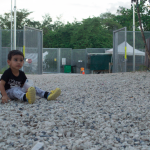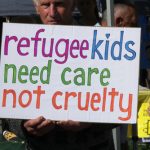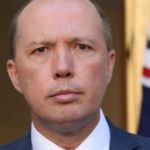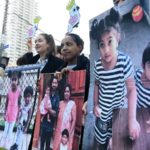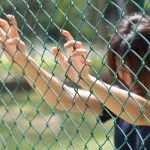Australian-Born Infants in Offshore Detention: An Interview With Biloela Advocate Angela Fredericks
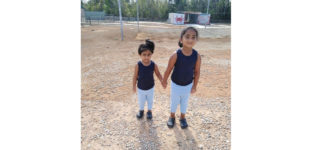
The prime minister announced towards the end of last month that due to the outbreak of the coronavirus, citizens and residents returning to Australia from China would be sent to the recently reopened Christmas Island detention facility for a two week quarantine period.
So, it’s problematic that while the Morrison government maintains that sending these people to offshore detention is a necessary safety precaution for all those on the mainland, this doesn’t apply to the only detainees that are currently on the island: a family with two Australian-born infants.
Often referred to as the Tamil Biloela family, these asylum seekers have been held on Christmas Island since last August, after they were granted a last minute deportation reprieve. And now their case is set to go before the Federal Court later this month for a full hearing for the first time.
A lack of humanity
Nadesalingam is the father of the family. He arrived in Australia by boat in 2012, fleeing the violence and arbitrary detention Tamils face in Sri Lanka. He later met and married, Priya, another Tamil asylum seeker, who came to this country under similar circumstances in 2013.
The pair then settled in the Queensland town of Biloela, where they became integral parts of the local community. And they also had two daughters: Kopika, who’s now 4 years old, and Tharunicaa, who’s only 2.
These children have spent much of their lives in immigration detention, as the Australian Border Force raided their home on 5 March 2018. The family were then detained in a Melbourne detention centre, prior to the Morrison government attempting to send them into danger.
Sydney Criminal Lawyers spoke to Biloela social worker Angela Fredericks about the impact long-term immigration detention is having on the two girls, the light the coronavirus quarantining sheds on their case, and her hope that her friends will be returning home soon.
Firstly, Angela, you’re a good friend of the family and you’ve been to Christmas Island to visit them. What sort of conditions are they being subjected to?
They’re in what was originally the construction workers’ campsite. So, it’s not the big detention centre that we saw in all the media footage when Scott Morrison reopened it last year.
It’s like a demountable village. So, you’ve got demountables, which are split into five rooms. They’ve got a bed in the one they’re in. And the toilet door comes to the bed. It’s that sort of space. And then in another demountable there’s a lounge area and a little kitchenette.
So, it’s definitely not appropriate for a family. They’re all in the one room, so they can keep an eye on the kids. The conditions are very basic.
It’s the isolation more than anything.
The Morrison government placed the Tamil family on Christmas Island, after the PM reopened the notorious centre as a kneejerk reaction to Medevac. So, up until a few weeks ago, they were the only detainees there.
But, the government has now sent hundreds of people to the centre, so as to quarantine them as a safety precaution against the coronavirus. What do you think about this development?
The quarantining of the coronavirus people demonstrates what our government uses Christmas Island for, and that’s to isolate and keep people away from the mainland.
That’s exactly what they’re doing to our family. It’s to keep them away from the media’s eye, and away from their advocates and lawyers.
But, we’ve seen the government’s true colours. I’ve known it all along, but many are seeing it now. The island is a place to lock people away, and keep them out of sight and mind.
They like to say it’s for everyone’s protection. But, really, it’s purely about making a tough situation even worse.
The two Australian-born girls have spent a sizable amount of their lives in immigration detention. How are they coping living under such conditions? And what sort of a toll is it taking?
We’re seeing two very different reactions with the girls. Kopika, the 4-year-old, remembers life before detention. She remembers the park and playing with kids. She remembers the freedom and the joy.
So, I see a lot of frustration and anger in her, in not understanding why she’s trapped. And there’s still those questions around why they can’t leave.
Whereas for Tharunicaa, pretty much all of her memories are in detention. For her, I see a lot more clinginess.
She hates being separated from her parents, because of all the trauma that she’s been put through in her short life.
So, in her we see those detachment disorders coming through. She’s finally started going to playgroup, and it will be interesting to see how she reacts with other children.
Kopika started school this week. She came down with gastro virus on her first day. That shows the isolation means they haven’t yet come into contact with the normal germs that kids come in contact with.
In a few weeks, the family’s case will be heard in the Federal Court. What will this involve? And what are your hopes of it being a successful case?
This case is a brand-new argument. It centres on the 2-year-old and her right to have an asylum claim in Australia.
My hope is that there’s a full picture of evidence that’s going to be looked at in this case, which there’s never been the opportunity to explore in the previous cases, because they were fast tracked.
However, we have to remember a lot of this is just working through the actual political processes. It’s still not actually around the facts about this family’s individual circumstances.
So, I still have hope that justice will prevail, and this family will get the safety that they’re seeking and need.
And lastly, much of the community hopes that the government will show some compassion and allow the family to return to their home in Biloela.
But, if their case was not successful, what would it mean for the family to have to return to Sri Lanka?
That’s a really uncertain question, particularly with the current political climate that we’re experiencing in Sri Lanka.
We do know that Nades will most likely be arrested on arrival. And he will undergo questioning.
We know that returned asylum seekers are viewed as traitors in Sri Lanka. They’re viewed as exposing the truth – the current president was part of the government that committed atrocities.
So, it’s a very uncertain future. We know they will be in highly militarised communities. There are concerns around particularly female Tamils being able to go to school, and not be at risk of sexual assault.
We know that there’s a very dangerous future for them over there. And we know, clear cut, that there’s a very safe future for them here in their home in Queensland.


